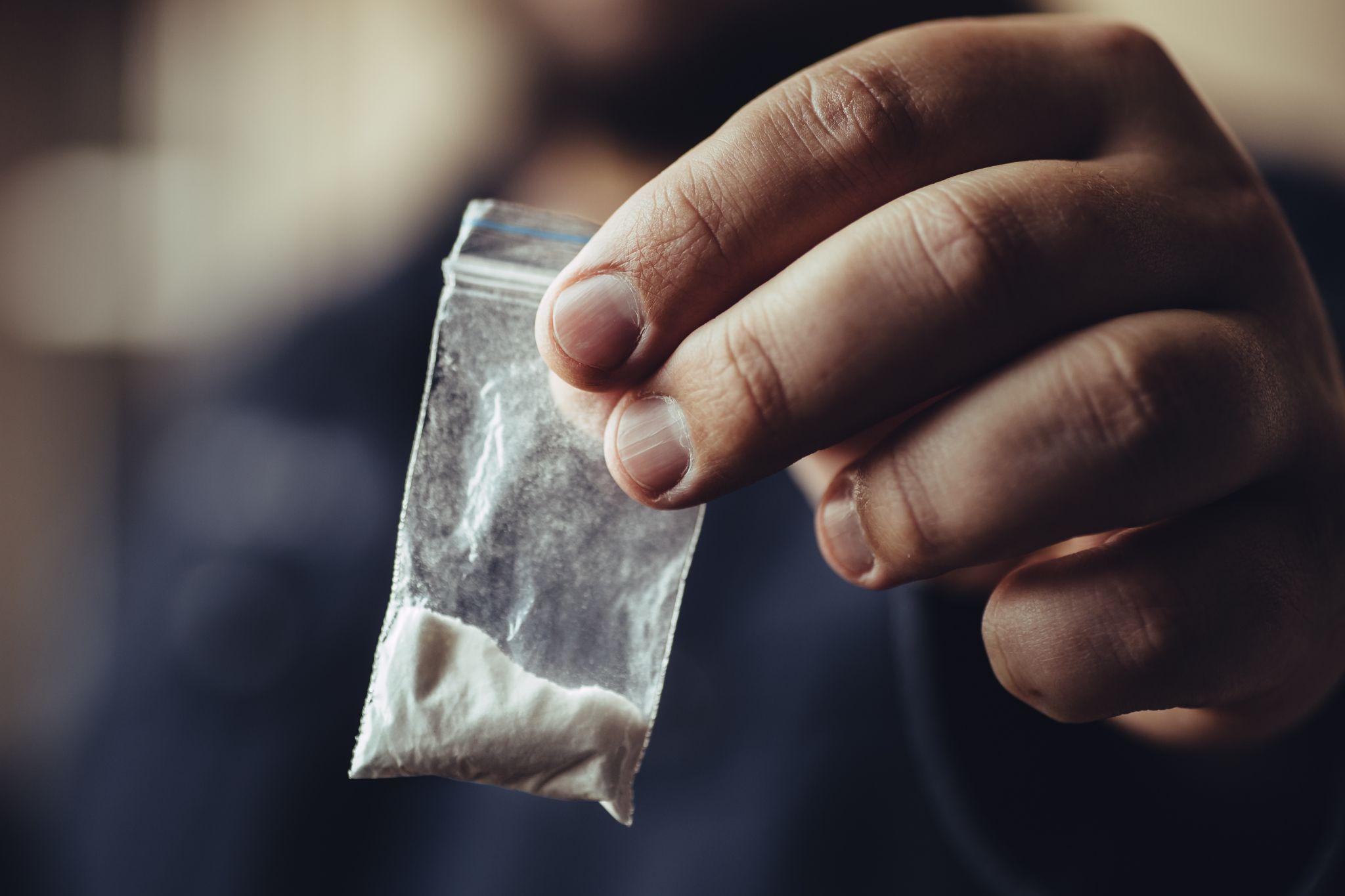
Our Addiction Resources
Navigating the world of addiction and recovery can be overwhelming. We’re here to provide clear, compassionate education and guidance. From practical advice for maintaining sobriety to informational guidance on the long-term effects of substance abuse, our content is a beacon of hope and understanding.
Our Team is Ready are ready to take your call
Call us Today!
or we can call you. Fill out form below
Our Blog

The Link Between OCD and Addiction
Obsessive-compulsive disorder (OCD) is a mental health condition marked by repeated and unwanted thoughts, urges, or obsessions that make individuals feel compelled to perform certain actions repetitively.
These behaviors are attempts to provide temporary relief and ease the distress caused by the obsessions. For individuals with OCD, the compulsion to engage in these behaviors is not a matter of choice but a perceived necessity to prevent perceived disastrous outcomes.
For people with OCD and those around them, the struggles extend beyond the anxiety-inducing rituals and persistent intrusive thoughts characteristic of OCD. Often, these challenges can intersect with substance use disorders (SUDs).
This connection, though complex, highlights the intricate ways mental health issues can intertwine, amplifying distress and complicating recovery paths. Understanding what the link between OCD and addiction involves is crucial, not only for those directly affected but also for loved ones.
Contributing Factors in OCD and SUD Development
Knowing the factors that contribute to the development of both OCD and substance abuse is crucial for effective treatment. These disorders often stem from a mix of genetic, environmental, and neurological factors, which can make them complex to diagnose and treat:1
- Genetic and environmental influences. Having a family history of OCD or SUD can significantly raise the risk of developing these conditions. The influence from a family can be genetic, pointing to hereditary factors. Environmental and cultural factors shared within families can also play a significant role.
For example, growing up in a home where compulsive and addictive behaviors or substance use is common, can shape a person’s coping mechanisms and behaviors.
- Insights from neuroscience. Advances in neuroscience have highlighted how brain chemistry plays a role in both OCD and SUDs. Research shows that irregular levels of certain neurotransmitters, such as glutamate, are found in individuals with these disorders. This suggests a potential link to the symptoms experienced in both OCD and SUDs. However, it’s still unclear whether these abnormalities are a cause or an effect of the disorders.
Dopamine, a neurotransmitter linked with reward and motivation, is known to affect behavior control, which is crucial in both OCD and SUDs. An imbalance in dopamine can lead to a loss of control over behaviors, a common feature in both disorders.
- The role of the prefrontal cortex. Research has also focused on the prefrontal cortex, a part of the brain important for decision-making and controlling behavior. Changes in this area have been observed in people with either OCD or SUD, impacting their ability to control repetitive behaviors, despite understanding the negative consequences.

The Importance of Dual Diagnosis Treatment for OCD and Addiction
When someone struggles with both OCD and SUD, they face two challenging conditions that can significantly affect their mental health and quality of life.
Reports indicate that less than half of the individuals with both OCD and SUDs actively seek treatment for their OCD. Treating only one condition while neglecting the other can lead to incomplete recovery and a higher risk of relapse.2
This is why dual diagnosis treatment programs, which address both disorders simultaneously, are necessary.
Comprehensive Approach
Dual diagnosis treatment centers offer a comprehensive approach that is tailored to the individual needs of each person. This type of treatment recognizes that both OCD and addiction influence each other and must be treated together.
For instance, the anxiety and stress from OCD can drive a person to use drugs or alcohol as a way to cope. On the other hand, substance use can worsen OCD symptoms, making them more severe and harder to manage.
Tailored Therapies
Effective dual diagnosis programs typically combine several types of therapy. Cognitive behavioral therapy (CBT) is often used in addiction treatment to help individuals understand and change their thought patterns that lead to both obsessive-compulsive behaviors and substance use.
Medication Management
In some cases, medication is an important part of treatment. Medications can help manage OCD symptoms, treat withdrawal symptoms from substances, reduce cravings, and stabilize mood.
It’s important that medication use is carefully monitored by a professional who understands how to treat both conditions together.
Support Systems
Support from therapists, support groups, and family is essential in dual diagnosis treatment. These support systems provide encouragement, understanding, and accountability, all of which are vital for someone dealing with two interlinked disorders. Learning how to build and rely on a healthy support network can significantly improve the chances of recovery.
Long-Term Management
Dual diagnosis treatment also focuses on long-term strategies to manage both OCD and addiction. This includes developing healthy coping skills, understanding triggers for both disorders, and making lifestyle changes that support overall well-being and recovery.
Dual diagnosis treatment is essential for individuals facing the dual challenges of OCD and addiction. It provides a more effective, thorough, and compassionate approach to treatment that acknowledges the complexity of co-occurring disorders, ultimately leading to a better chance for a full recovery and a healthier life.
Take Charge of Your Recovery Journey With Lumina Recovery
Recognizing and addressing the complex relationship between OCD and addiction is essential for effective treatment and lasting recovery. Dual diagnosis treatment offers a comprehensive and integrated approach, tackling both disorders simultaneously with tailored therapies, medication management, and supportive networks.
Lumina Recovery practices a holistic approach for addiction treatment programs and dual diagnosis rehab, giving individuals a better chance of managing their symptoms, overcoming their challenges, and reclaiming their lives.
If you or a loved one are struggling with the intertwined challenges of OCD and addiction, don’t hesitate to reach out today for help and start on the path to recovery. It’s time to take charge of your health and embrace a brighter future.
Sources:

How to Navigate Schizophrenia and Addiction
Dealing with schizophrenia coupled with addiction presents a unique set of challenges, both for individuals experiencing these conditions and their loved ones. Schizophrenia, a chronic mental illness characterized by symptoms like hallucinations, delusions, and disorganized thinking, can severely impact a person’s ability to function daily.
When addiction is also present, managing these conditions becomes doubly challenging. This dual diagnosis of schizophrenia and substance abuse requires a nuanced understanding and a specialized approach to treatment and support.
Lumina Recovery understands the intricate relationship between schizophrenia and addiction, and our goal is to explore the underlying factors contributing to this multilayered challenge and offer guidance on seeking effective dual diagnosis treatment.
The Connection Between Schizophrenia and Addiction
The relationship between schizophrenia and substance use disorders is notably complex and marked by high co-occurrence rates.
Statistics indicate that about 47% of individuals with schizophrenia also struggle with alcohol or drug abuse, compared to just 16% of the general population.1
This significant disparity points to a deeper, intertwined connection between schizophrenia and substance use disorders, one that transcends coincidence.
Biological and Genetic Links
Studies show that schizophrenia and substance use may share common biological pathways. For instance, drug use and schizophrenia both involve changes in brain circuits, particularly those related to reward and pleasure.2,3
People diagnosed with schizophrenia often experience alterations in these circuits, which may heighten the allure of substance use as a temporary relief from their symptoms. Substances like nicotine are found to be particularly gratifying due to these altered neural pathways.
From a genetic perspective, both schizophrenia and substance use disorders tend to run in families, suggesting a hereditary component to their connection. Genetic predispositions toward schizophrenia can be activated by stressors such as heavy substance use, potentially leading to the development of the disorder.2
Psychological and Social Self-Medication
Many experts believe that individuals with schizophrenia may use drugs as a form of self-medication in an attempt to alleviate various negative symptoms of schizophrenia.
Symptoms of schizophrenia, such as hallucinations, delusions, impaired thinking, difficulties in social functioning, challenges in managing relationships, or coping with the demands of work can significantly create a fertile ground for addiction.
Nicotine has been shown to help some people with schizophrenia manage not only the symptoms of their condition but also the side effects of their antipsychotic medications.2,4
Early Substance Use and Trauma
Interestingly, substance use disorders can precede the onset of schizophrenia symptoms. Heavy drug or alcohol use during adolescence might increase the likelihood of developing psychotic symptoms later in life.2
This relationship highlights the potential for early intervention in substance use as a means to possibly prevent or mitigate the severity of later schizophrenia.
Childhood trauma is another significant factor that can intertwine with genetic predispositions to trigger schizophrenia. Traumatic experiences and environmental factors can alter brain chemistry and structure, potentially laying the groundwork for both schizophrenia and substance use disorders.2
The interaction of these factors makes pinpointing causality challenging but underscores the need for a holistic approach to treatment that addresses both genetic and environmental influences.

The Importance of Dual Diagnosis Treatment for Schizophrenia and Addiction
Dual diagnosis rehab is crucial for people with both schizophrenia and substance use disorder. This approach is vital because treating just one condition can lead to poor results and a higher chance of relapse. Dual diagnosis treatment programs provide coordinated care that addresses both conditions at the same time, offering a more comprehensive approach to recovery.
Integrated Treatment Approach
The integrated treatment approach combines mental health care for schizophrenia with therapy for substance abuse. This coordinated plan aims to tackle both disorders together. Here are some important parts of dual diagnosis treatment:
- Medication Management: Effective treatment often includes medications for schizophrenia symptoms, such as antipsychotics, along with those that help control substance cravings and withdrawal. Health professionals carefully manage these medications to avoid negative interactions and ensure the treatments are effective for both conditions.
- Psychotherapy: Therapy is a key part of treating dual diagnosis. Cognitive behavioral therapy (CBT) and other methods help individuals change harmful thoughts and behaviors linked to both schizophrenia and substance abuse. Therapies like motivational interviewing and supportive therapy also play vital roles by boosting motivation and providing emotional support.
- Family Therapy and Education: Teaching family members about dual diagnosis and involving them in therapy can significantly improve treatment outcomes. Family therapy helps to mend and strengthen family relationships, providing crucial support needed for recovery.
- Peer Support and Group Therapy: Group therapy offers a chance to share experiences and coping strategies with others facing similar challenges. This support can lessen feelings of loneliness and build a community of understanding among individuals with dual diagnoses.
- Case Management and Support Services: Case management helps individuals manage their treatment complexities, ensuring they receive proper health care, social support, and rehabilitation. Support services may include assistance with housing, employment, and accessing community resources, which are crucial for overall stability and recovery.
Tailoring Treatment to Individual Needs
Since schizophrenia and addiction vary widely among individuals, dual diagnosis treatment must be personalized. Treatment plans should consider the severity of symptoms, the type of substances used, and individual health needs.
This approach ensures that all aspects of a person’s condition are addressed. Continuous assessment and adjustment of treatment plans are necessary to respond to changing needs over time.
Take the First Step Towards a Healthier Tomorrow With Lumina Recovery
Dealing with schizophrenia in conjunction with addiction is undoubtedly complex, but it is not insurmountable. Understanding the intricate relationship between the two conditions is essential for effective treatment and recovery. By addressing both schizophrenia and addiction together, through integrated treatment programs, individuals can receive the comprehensive care they need.
Lumina Recovery has dual diagnosis treatment centers specializing in different mental health disorders and addiction types to fit the unique needs of each patient. Whether you are battling these conditions or are a loved one seeking help, know that resources are available and recovery is possible.
Reach out to our team to discuss dual diagnosis treatment options today.
Sources:

ADHD and Addiction: Navigating the Path
Attention-deficit/hyperactivity disorder (ADHD) is a neurological condition that not only affects concentration and self-regulation but also significantly impacts an individual’s behavioral patterns.
People with ADHD may be drawn to abuse drugs or alcohol as a way to cope with their symptoms or as a result of their brain’s unique chemistry, leading to addiction. Commonly abused substances among those with ADHD include stimulants like amphetamines and cocaine, which are often used in an attempt to enhance focus and control impulsivity. Others may turn to alcohol or marijuana to soothe feelings of restlessness or to manage the emotional dysregulation associated with ADHD.1
Understanding the reasons behind the increased risk of substance abuse and exploring effective treatment approaches, including dual diagnosis rehab, are essential for treating ADHD symptoms and addiction.
Can Addiction Be Linked to ADHD?
Research shows that the relationship between ADHD and substance abuse is complex and multifaceted.2 It is important to understand how certain characteristics and neurological aspects of ADHD contribute to an increased susceptibility to addiction for timely intervention:
Impulsivity and Risk-Taking
Impulsivity is one of the main symptoms of ADHD, particularly evident in the hyperactive-impulsive presentation of the disorder. This trait manifests as a tendency to act without thinking about the long-term consequences, leading to a propensity for risk-taking behaviors.
In the context of substance use, this means that individuals with ADHD might experiment with drugs, alcohol, or controlled substances at a younger age compared to their peers. This early experimentation is a critical risk factor for the development of substance use disorders.
Self-Medication Theory
Many individuals with ADHD turn to substances as a means to manage or mitigate the symptoms of their condition. This self-medication can be seen across various substances:
- Stimulants: Individuals with ADHD may use illicit stimulants to replicate the effects of prescribed medications like amphetamines, which are used to increase concentration and calm hyperactivity. However, the uncontrolled use of stimulants can lead to dependency and exacerbate ADHD symptoms over time.
- Depressants: Alcohol and marijuana are often used by those with ADHD to calm their restlessness or manage feelings of being overwhelmed. These substances might temporarily alleviate these discomforts but can also contribute to the development of addiction.
- Nicotine and Caffeine: Less intense but equally concerning are substances like nicotine and caffeine, which may be used excessively by individuals with ADHD to enhance focus or manage energy levels.
Brain Chemistry
The neurobiological underpinnings of ADHD and addiction are deeply intertwined, particularly through the dopamine system. ADHD is associated with dysregulated dopamine pathways, which affect attention, motivation, and the pleasure/reward system in the brain.
Given dopamine’s crucial role in the pleasure derived from drug use, individuals with ADHD might be more driven to seek out substances that increase dopamine levels as a way to self-regulate or enhance their dopamine function.

Treating ADHD and Addiction
Treating the dual diagnosis of ADHD and addiction involves an approach that addresses both conditions simultaneously to ensure the best possible outcomes. Treatments for ADHD and addiction can be found at dual diagnosis treatment centers and offer the following programs:
Integrated Treatment Programs
Dual diagnosis treatment. Dual diagnosis treatment programs specifically designed to handle dual diagnoses are crucial. These programs offer integrated therapy that addresses both ADHD and addictive behaviors, recognizing that each condition can exacerbate the other. Treatment in a dual-diagnosis context is tailored to mitigate the risks associated with one condition worsening the other.
Coordination between treatment providers. Effective treatment requires coordination among healthcare providers, including psychiatrists, addiction specialists, and therapists. This collaboration ensures that treatment for addiction considers ADHD symptoms and vice versa, providing a holistic approach.
Behavioral Therapies
Cognitive behavioral therapy (CBT). CBT is highly effective in treating both ADHD and addiction. For ADHD, CBT helps modify the patient’s thought patterns and behaviors, improving focus and organizational skills. For addiction, CBT helps identify triggers for substance use, develop coping strategies, and change harmful patterns of behavior.
Mindfulness and behavioral modification. Techniques such as mindfulness can help individuals with ADHD to better manage impulsivity and increase their awareness of actions and consequences, which is particularly useful in managing addictive behaviors. Other behavioral therapies may focus on developing skills for delay of gratification and improving emotional regulation.
Medication Management
Careful use of stimulants. Although stimulant medications are effective for treating ADHD, they carry a risk of abuse, particularly for individuals with a history of addiction. Non-stimulant medications like atomoxetine or certain antidepressants might be considered as they have a lower potential for abuse.
Medications for addiction. Depending on the substance involved, medications may be prescribed to manage withdrawal symptoms, reduce cravings, or treat co-occurring disorders like depression or anxiety, which are often present in individuals with ADHD and addiction.
Lifestyle Changes and Holistic Approaches
Routine and structure. For those with ADHD, a structured routine can be beneficial in reducing impulsivity and managing time effectively, which in turn can help avoid triggers for substance use.
Diet and exercise. Regular physical activity and a healthy diet can improve overall brain health and reduce symptoms of both ADHD and addiction. Exercise releases endorphins and helps regulate dopamine levels, which is particularly beneficial for individuals with ADHD.
Holistic therapies. Activities like yoga, meditation, and acupuncture may also be integrated into the treatment plan to help manage stress, enhance focus, and support overall well-being.
Monitoring and Continuity of Care
Continual monitoring and adjustment of treatment strategies are essential, especially as symptoms evolve or change. Regular follow-ups with healthcare providers help assess the effectiveness of the treatment plan and make necessary adjustments. This ongoing care is crucial in preventing relapse and ensuring long-term recovery.
Take the First Step Toward Recovery With Lumina Recovery
Navigating the path when ADHD meets addiction requires understanding, comprehensive care, and support. Recognizing the intertwined nature of these conditions is the first step toward recovery. If you or someone you care about is struggling with ADHD and addiction, it is important to seek a treatment approach that considers the complexities of both.
Lumina Recovery’s dual diagnosis services specialize in treating ADHD and a variety of addictions. Take the first step toward a healthier future by exploring our treatment options that cater to both ADHD and addiction.
For guidance and support tailored to your unique situation, reach out to our specialists today
Sources:

What Is the Heroin Withdrawal Timeline?
Experiencing withdrawal from heroin can be challenging, but understanding what to expect and the symptoms of heroin withdrawal can empower individuals and their loved ones to face this difficult journey with resilience and informed expectations.
Knowing the timeline of heroin withdrawal provides insights into the symptoms and challenges that may arise, offering guidance on how to manage them effectively.
What to Expect From the Heroin Withdrawal Timeline
Going through heroin withdrawal is an inevitable and necessary step toward recovery, and understanding the timeline of heroin withdrawal symptoms can significantly aid individuals and their caregivers in preparing for what lies ahead.
How long does heroin withdrawal last? Although it varies for everyone and depends on long-term use, being aware of these stages not only helps in managing expectations but also in implementing effective coping strategies to support a successful heroin detox process.
Early Symptoms (0-24 Hours After Last Dose):
The initial phase of heroin withdrawal typically begins within hours after the last dose. As the drug starts to leave the system, the body begins to exhibit a range of symptoms that signal the start of the detoxification process. Often uncomfortable, this phase marks the body’s immediate reaction to the absence of heroin. Withdrawal symptoms include:
- Muscle Aches: Often severe, these are usually among the first signs of withdrawal.
- Restlessness and Anxiety: These symptoms can be pronounced, causing significant discomfort and agitation.
- Tearing and Runny Nose: Increased tearing and a runny nose are common physical reactions to withdrawal.
- Excessive Sweating: Sweating can be a typical response as the body begins to adjust to the lack of heroin.
- Sleep Difficulties: Insomnia and frequent yawning are indicative of the body’s struggle to find balance without the drug.
- Yawning: Yawning very often, even when not tired, can be a typical early withdrawal symptom.
Later Symptoms (24-72 Hours After Last Dose):
As withdrawal progresses, the symptoms tend to intensify and reach their peak. This stage is characterized by more severe physical and emotional symptoms as the body continues to adjust to the lack of opioids. This period can be particularly challenging due to the increased intensity of symptoms that can significantly impact an individual’s ability to function.
- Diarrhea and Abdominal Cramping: These symptoms can increase in intensity, often peaking during this period.
- Goosebumps: Visible goosebumps are a hallmark of opioid withdrawal.
- Nausea and Vomiting: These symptoms can be among the most distressing, leading to significant physical exhaustion.
- Dilated Pupils and Blurry Vision: Changes in vision can be common during the height of withdrawal.
- Rapid Heart Rate and High Blood Pressure: Cardiovascular symptoms reflect the body’s heightened state of stress and agitation.
Improvement Phase (After 72 Hours):
Following the peak, there is generally a noticeable improvement as the acute symptoms begin to subside. The body starts to stabilize, and the most severe physical symptoms gradually lessen, though psychological and emotional symptoms may persist. This phase often brings a sense of relief as the intensity of withdrawal decreases.
Generally, symptoms begin to improve significantly within 72 hours of the last dose. By the end of the first week, physical acute withdrawal symptoms often decrease markedly, though psychological symptoms may persist.1
Extended Withdrawal (Protracted Abstinence):
As the acute phase subsides, some individuals may enter a prolonged recovery phase known as protracted abstinence. This stage can last for several months and is characterized by less intense but more persistent symptoms, particularly psychological ones like anxiety, depression, and cravings. Ongoing support and treatment are crucial during this time to help manage these symptoms and prevent relapse.
Early on in recovery from opioid use disorder or dependence, there is a 90% likelihood of experiencing post-acute withdrawal syndrome (PAWS). This syndrome consists of a group of symptoms that appear after the acute phase of opioid withdrawal, which is usually addressed through medically supervised detox.2

Addiction Treatment for Heroin Withdrawal
Treatment for heroin withdrawal is crucial for providing relief from symptoms and paving the way toward long-term recovery. Effective heroin withdrawal treatment strategies are tailored to individual needs and typically include a combination of medical management, psychological support, and continuous care.
1. Medical Detoxification
Supervised Medical Detox: This is the first step in treating heroin withdrawal. Medical professionals supervise the detox process in a controlled environment, ensuring the safety and comfort of the individual as they undergo withdrawal symptoms.
Medication-Assisted Treatment (MAT): Medications are often used to ease withdrawal symptoms and reduce cravings for heroin. Commonly used medications include:
- Methadone: A long-lasting opioid that alleviates cravings and withdrawal symptoms without eliciting the euphoric high typical of heroin.
- Buprenorphine: Often administered as Suboxone (a combination of buprenorphine and naloxone), this medication also helps reduce cravings and withdrawal symptoms.
- Clonidine: Used to reduce anxiety, agitation, muscle aches, sweating, runny nose, and cramping.
Monitoring for Complications: Healthcare providers monitor for any life-threatening complications during the detox phase, such as dehydration or other medical issues that can arise from severe withdrawal symptoms.
2. Psychological and Behavioral Therapies
Cognitive Behavioral Therapy (CBT): Evidence-based therapy that helps individuals recognize and change detrimental thought patterns and behaviors related to drug use.
Group Therapy: Provides peer support and helps individuals learn from the experiences of others facing similar challenges.
3. Supportive Care
Nutritional Support: Proper nutrition helps individuals recover physical health weakened by addiction.
Exercise and Wellness Programs: Physical activity can improve mood, reduce stress, and strengthen overall health.
Holistic Therapies: Techniques such as yoga, meditation, and acupuncture can complement traditional treatments by promoting mental and physical well-being.
4. Long-Term Recovery Planning
Relapse Prevention Education: Teaches individuals how to identify and manage triggers that could lead to relapse.
Aftercare Programs: Ongoing support after initial treatment options are critical. This may include sober living arrangements, outpatient treatment, and regular therapy sessions.
Community Support Groups: Organizations such as Narcotics Anonymous (NA) provide a community of individuals committed to recovery, offering lifelong support and accountability.
Get Help for Heroin Addiction With Lumina Recovery
Heroin withdrawal is a strenuous process, both physically and emotionally. It is crucial to seek professional medical help to manage symptoms safely and effectively. Recovery is a gradual process, and while the journey may be fraught with challenges, the support of loved ones and professionals can provide the strength needed to overcome addiction.
Lumina Recovery offers medically assisted detox and heroin addiction treatment programs that focus on a holistic path to recovery. Remember, withdrawal is just the first step towards a longer-term goal of recovery and health.
Reach out for professional support today and take your first step on the path to recovery.
Sources:

Symptoms and Signs of Heroin Addiction
Heroin addiction is a severe and life-altering condition that affects not only the individual using the substance but also their loved ones and the surrounding community. Understanding the signs, symptoms, and effects of heroin addiction is crucial for early detection and intervention, which can significantly improve the chances of recovery.
Learn about heroin and substance abuse through key signs and symptoms, tailored for individuals who may be worried about their own drug use or that of someone close to them.
Impact of Heroin Abuse and Addiction
Heroin, an opioid drug derived from opium poppy plants, is a highly addictive substance that manipulates the brain’s natural pleasure systems and can quickly lead to dependency. Initially, users may find heroin provides a feeling of warmth, well-being, and detachment from pain, both physical and emotional.
However, as tolerance develops, the user requires increasing amounts of the drug to achieve these effects, which can quickly escalate to an all-consuming addiction. 1
In 2021, the National Institute on Drug Abuse published its Heroin Research Report with findings from the 2021 National Survey on Drug Use and Health: 2
- Approximately 1.1 million people aged 12 or older reported using heroin within the past 12 months in the United States.
- About 1 million people aged 12 or older were estimated to have struggled with addiction to heroin (heroin use disorder) during the same timeframe.
These statistics underscore the significant long-term health challenge that heroin addiction continues to pose, affecting over a million people in the United States and highlighting the critical need for effective treatment and prevention strategies.
Recognizing Heroin Addiction
Heroin addiction is an overwhelming reality for many, and it presents through a range of signs that can be physical, behavioral, and psychological. Each heroin addiction sign alone may not indicate an addiction, but the cumulative effect of several can be a strong indicator of opioid use disorder (OUD). Understanding these signs can help in identifying whether someone is struggling with heroin addiction.
Recognizing the symptoms of heroin addiction involves observing drastic changes in an individual’s behavior, appearance, and health status:3
Behavioral Signs
- Increased secrecy and deception. Engaging in secretive behaviors or lying about whereabouts can indicate issues like drug use.
- Social withdrawal. Individuals may pull away from family and friends, often to hide their drug use or because of their changed priorities.
- Neglecting responsibilities. There might be a noticeable decline in performance at work or school and a disregard for home and family responsibilities.
- Financial problems. Unexplained borrowing of money or the sudden emergence of financial troubles may be signs of spending money on drugs.
- Changes in social circles. Associating predominantly with other known drug users or a complete change in friendship groups.
- Neglecting hobbies. A loss of interest in activities that the person once enjoyed.
- Poor decision-making. Engaging in risky behaviors, such as driving under the influence, can be a significant warning.
- Mood swings. Extreme and sudden changes in mood, from elation to fatigue, can be a direct result of drug use or its effects on the brain.
- Altered sleep patterns. Heroin use can lead to insomnia or an excessive need for sleep at odd times.
- Development of withdrawal symptoms. Symptoms such as shaking, nausea, irritability, and anxiety when unable to use heroin.
Physical Signs
- Marked changes in appearance. This can include a lack of personal hygiene, poor grooming, and disheveled clothing.
- Physical health declines. Notable weight loss, constricted pupils, and signs of injections like marks on the arms.
- Possession of paraphernalia. Items like needles, spoons, and lighters may be found among the possessions of someone using heroin.
- Nosebleeds and respiratory issues. Frequent nosebleeds can occur from snorting heroin, and respiratory depression is common in users.

Treatment Options for Heroin Addiction
Heroin addiction is a complex disorder, but several effective treatment methods can help individuals overcome dependence and reclaim their lives. Treatment usually involves a combination of medical and psychological approaches tailored to the individual’s needs.
Detoxification and Medical Management
The first step in treating heroin addiction typically involves detoxification, which is the process of allowing the body to rid itself of the substances to which it has become addicted. This stage can be challenging due to the withdrawal symptoms that accompany it, such as nausea, shaking, and severe anxiety.
To manage these symptoms and ensure safety during detox, medical professionals often administer medications. With medication-assisted treatment (MAT), methadone, buprenorphine, and naltrexone are commonly used to help reduce cravings and withdrawal symptoms, allowing for a smoother transition into sobriety.
Behavioral Therapies
Following or in conjunction with detox, various forms of behavioral therapies are employed. Cognitive behavioral therapy (CBT) is widely used to help individuals in recovery understand the thoughts and situations that trigger their drug use, develop coping mechanisms, and devise strategies to avoid and manage those triggers.
Family therapy can also be significant, providing support and education to family members, helping them to understand addiction dynamics, and teaching ways to support their loved ones effectively.
It is important to mention any family history of substance abuse or family history of mental illness to your healthcare professional. It is also necessary to make healthcare professionals aware of your own personal history of mental illness.
Holistic and Alternative Therapies
In addition to traditional treatment methods, holistic approaches can play a pivotal role in the recovery process. These may include mindfulness and meditation, yoga, and acupuncture, which help individuals manage stress and emotions that could potentially trigger relapse. Nutritional counseling and physical fitness programs also support overall well-being and aid in rebuilding a healthy body and mind.
Begin Your Sobriety From Heroin With Lumina Recovery
Recognizing the signs of heroin addiction is the first step in confronting this challenging issue. For those who suspect they or someone they know may be struggling with heroin use, it’s important to seek professional help immediately. Heroin is a powerful drug, and its addiction requires comprehensive medical and psychological intervention.
Lumina Recovery’s heroin and opioid addiction treatment programs provide detox and therapy options including family therapy, cognitive behavioral therapy (CBT), and holistic activities to overcome this addiction and lead a healthy, drug-free life.
If you recognize any signs of addiction in yourself or a loved one, don’t hesitate to reach out for help today.
Sources:

What to Expect From Cocaine Withdrawal
When someone decides to quit using cocaine, they face the daunting prospect of withdrawal. This phase is a crucial step towards recovery, marked by physical and psychological challenges.
Understanding what to expect during this period and the symptoms of cocaine withdrawal can provide comfort and prepare individuals and their loved ones for the journey ahead.
Timeline of Cocaine Withdrawal
How long does cocaine withdrawal last? Cocaine withdrawal is a complex process that impacts both the mind and body and affects everyone differently. When a person who abuses cocaine decreases their use or quits entirely, they can experience withdrawal symptoms even with some residual cocaine in their bloodstream. The withdrawal stages and cocaine withdrawal symptoms include:1
1. The Initial Crash (0-24 Hours)
Onset of Withdrawal: Withdrawal can begin shortly after the last dose of cocaine, sometimes within hours. As the high from cocaine diminishes, individuals may experience a “crash,” a rapid decline in mood and energy.
Symptoms Include:
- Intense craving for cocaine. As the effects of cocaine wear off, a strong desire to use more to regain the euphoria is common.
- Fatigue and sleepiness. The body feels drained of energy, leading to a significant increase in fatigue.
- Mood disturbances. Mood swings are common, with individuals feeling irritable, anxious, and sometimes extremely suspicious or paranoid.
2. The First Few Days (1-3 Days)
Continuation of Symptoms: The initial crash transitions into a more prolonged withdrawal phase where the body begins adjusting to the absence of cocaine.
Symptoms Include:
- Depressed mood. As the brain’s dopamine levels plummet, individuals may experience severe depression.
- Increased appetite. With the cessation of cocaine, appetite returns, often leading to significant increases in food intake.
- General discomfort. A pervasive sense of discomfort and malaise sets in, affecting overall well-being.
3. The First Week (4-7 Days)
Gradual Symptom Shift: While some acute symptoms may begin to subside, psychological symptoms can persist or even intensify.
Symptoms Include:
- Vivid and unpleasant dreams. Individuals may experience vivid dreams that are often unpleasant or disturbing.
- Slowing of activity. There may be a noticeable slowdown in physical and mental reactions and activities.
- Continued cravings and depression. Cravings for cocaine persist and can be accompanied by ongoing depression, sometimes including to suicidal thoughts.
4. Extended Withdrawal (Beyond 1 Week)
Long-Term Adjustment: Withdrawal symptoms can extend for several weeks or months, especially after long-term, heavy use.
Symptoms Include:
- Persistent cravings. Cravings for cocaine can last for months and may occur sporadically.
- Mood swings and emotional instability. The emotional roller coaster continues, with episodes of depression and possibly paranoia.
- Cognitive and emotional recovery. Gradual improvements in mood and cognitive functions can occur, though this can be a slow process.
How to Handle Cocaine Withdrawal
When coping with cocaine withdrawal, it’s essential to adopt strategies that address both the physical and psychological challenges of recovery.
1. Engage With Professional Support
Withdrawal can involve intense and uncomfortable symptoms. Engaging with medical professionals who specialize in addiction can help manage cocaine detox safely, sometimes with the use of medications to ease the withdrawal process.
Mental health professionals can provide individual and group therapy support for substance use disorders. Cognitive behavioral therapy (CBT), for example, can help modify the behavioral patterns related to cocaine dependence. Therapists can also help manage the emotional symptoms of withdrawal, such as depression and anxiety.
2. Build a Strong Support Network
Participating in groups like Narcotics Anonymous (NA) or other community support groups can provide peer support and encouragement, which is vital for long-term recovery. Sharing experiences and challenges with others who understand the path can lessen the feeling of isolation.
Lean on understanding and supportive family members and friends. Educating them about what you’re going through can help them provide the necessary support and encouragement.

3. Maintain a Healthy Lifestyle
Physical activity can boost endorphin levels, which help improve mood and reduce stress. Even simple activities like walking or yoga can have significant benefits.
Nutritional support is crucial during recovery. A diet rich in vegetables, fruits, whole grains, and lean proteins can help restore physical health and improve mood.
Cocaine withdrawal often disrupts sleep patterns. Establishing a regular sleep schedule and creating a restful environment can help normalize sleep over time.
4. Prioritize Mental Health Care
Practices such as mindfulness meditation can reduce stress and anxiety by helping focus on the present moment. These practices can also improve emotional regulation and decrease the intensity of cravings.
Techniques such as art therapy, music therapy, or equine therapy provide alternative ways to express emotions and process experiences during recovery.
5. Avoid Triggers
Recognize situations, places, or people that evoke the urge to use cocaine and develop strategies to avoid or cope with these triggers. This might mean changing social circles or avoiding certain social situations.
Replace old habits with new, healthy ones. This can include hobbies, interests, or learning new skills that engage and stimulate recovery progress without the risks of relapse.
6. Plan for Long-Term Recovery
Long-term treatment for cocaine with regular check-ins can help maintain focus on recovery and address any emerging issues before they lead to relapse.
Learning and implementing relapse prevention strategies for substance abuse is a core part of recovery. This can involve recognizing early warning signs of relapse, developing a response plan, and continually adapting strategies as recovery progresses.
Begin Your Sobriety From Cocaine With Lumina Recovery Today
Understanding the timeline and what to expect during cocaine withdrawal is crucial for preparation and success in recovery. Every individual’s experience is unique, but knowing the common phases and symptoms can demystify the process and provide reassurance that recovery, although challenging, is possible.
Lumina Recovery has a cocaine addiction treatment program equipped to help you or your loved one at any stage of the recovery journey, from initial detox to outpatient support. Recovery requires a lot of hands-on work, but every step is worth it for a beautiful, drug-free life.
Take the first step towards a healthier future today by reaching out and beginning your journey to recovery.
Source:

Signs and Symptoms of Cocaine Addiction
Cocaine is a powerful and addictive stimulant produced in a powder form that directly affects the central nervous system. It increases levels of dopamine, a neurotransmitter associated with pleasure and movement, creating an intense feeling of euphoria. Typically, the high from cocaine is short-lived, leading to repeated cocaine use in a short period. This pattern can quickly evolve into cocaine abuse.1
Addiction to cocaine is a complex issue that affects millions of individuals and families in the United States. Understanding cocaine addiction signs and symptoms can be crucial for those worried about their own recreational use or concerned about a loved one.
Signs of Cocaine Addiction
Signs of cocaine use often start subtly before manifesting into more overt and damaging addictive behaviors. Recognizing the early signs of substance abuse can be important for timely intervention and support. Some of the common signs that may indicate someone is struggling with a cocaine addiction include:2
Physical Signs
- Unexplained weight loss. Cocaine can suppress appetite, leading to significant weight loss and malnutrition.
- Dilated pupils. One of the most noticeable signs of recent cocaine use is dilated pupils.
- Increased energy and agitation can often be seen in cocaine users due to the drug’s stimulant properties.
- Chronic runny nose or nosebleeds. Frequent snorting of cocaine can lead to nasal irritation and damage, resulting in a chronic runny nose or nosebleeds.
- Changes in sleep patterns. Cocaine can cause disruptions in sleep, leading to insomnia or a completely altered sleep schedule.
- Burn marks on lips or hands. Using crack cocaine can leave burns on lips or hands due to smoking from a hot pipe.
- White powder residue. Traces of white powder around the mouth or nose are telltale signs of recent snorting.
- Decline in oral health. Cocaine use may lead to oral health issues, including gum disease and tooth decay.
Behavioral Signs
- Changes to eating habits. Along with weight loss, changes in eating habits can be a sign of addiction.
- Changes to social patterns. Withdrawal from usual social activities or hobbies may indicate that an individual is prioritizing cocaine use.
- Social isolation. Increasing isolation from friends and family is common as individuals may feel ashamed or want to hide their substance use disorder.
- Increase in harmful behaviors. Engaging in risky or harmful behaviors, such as driving under the influence, is more common.
- Neglect of personal relationships. As addiction deepens, maintaining personal relationships becomes less of a priority.
- Mood changes or irritability. The highs from cocaine are often followed by lows, which can manifest as mood swings or irritability.
- Sudden financial difficulties. Cocaine addiction can be expensive, leading to unexplained financial problems.
- Difficulty at work or school. Performance can decline as a result of impaired cognitive functions and reduced focus.
Long-Term Effects of Cocaine Use
With repeated use, the brain’s reward pathways may adapt, becoming less sensitive to natural rewards such as food and social interactions. At the same time, the circuits related to stress grow increasingly sensitive. This can lead to heightened displeasure and negative moods when not using the drug, which are classic signs of withdrawal.
Over time, users may develop a tolerance that needs higher doses of cocaine to achieve the same euphoric effects. This also comes with a sensitization that lowers the threshold for the drug’s toxic effects, including anxiety and convulsions, thus escalating the risk of overdose.
Regular and intense binge usage can exacerbate these effects, leading to severe psychological disturbances such as increased irritability, panic attacks, paranoia, and psychosis, characterized by a loss of touch with reality and auditory hallucinations.1

Treatment Options for Cocaine Addiction
Treating cocaine addiction requires a comprehensive approach, involving various methods tailored to the individual’s specific needs. There is no one-size-fits-all addiction treatment, and effective recovery often involves a combination of therapies.
1. Behavioral Therapies
Behavioral therapies like cognitive behavioral therapy (CBT) are the most effective treatments for cocaine addiction. These therapies help modify the patient’s drug use patterns and effectively increase healthy life skills.
2. Group Therapy
Group therapy provides a supportive space for individuals to share experiences and learn from the experiences of others. It fosters a sense of community and belonging, which is vital for individuals who often feel isolated due to their addiction.
3. Medication-Assisted Treatment (MAT)
While there are no FDA-approved medications specifically for cocaine addiction, some medications used for other purposes can help with certain aspects of cocaine withdrawal and dependence.
For example, medications such as bupropion (an antidepressant) have shown some promise in reducing the symptoms associated with cocaine withdrawal and dependence.
4. Residential Treatment Programs
Residential treatment provides intensive care and is suitable for people with severe problems, including co-occurring disorders. These programs involve living at a treatment facility while undergoing comprehensive therapy and activities designed to teach coping skills and how to live without drugs.
5. Dual Diagnosis Treatment
Since many individuals struggling with cocaine addiction also suffer from other mental health disorders, dual diagnosis treatment can address both addiction and co-occurring mental health issues simultaneously. Treatment plans in dual diagnosis include a combination of therapies that cater to both conditions effectively.
6. Holistic Therapies
Holistic therapies aim to treat the individual as a whole rather than just focusing on stopping drug use. These might include yoga, meditation, acupuncture, and focusing on nutrition. Such therapies can be beneficial for stress management and emotional regulation, which are crucial components of addiction recovery.
7. Support Groups
Support groups like Cocaine Anonymous (CA) provide ongoing peer support for individuals recovering from cocaine addiction. These groups are based on the 12-step model of Alcoholics Anonymous and offer a structured approach to recovery that includes admitting one’s powerlessness over addiction and working through steps toward recovery.
Act Now to Overcome Cocaine Addiction With Lumina Recovery
Recognizing the signs and symptoms of cocaine addiction is the first step toward helping someone in need. Whether you’re concerned about your own usage or worried about a loved one, it’s important to know that help is available.
Lumina Recovery offers detox programs and cocaine addiction treatment programs based on a holistic healing approach by providing dual diagnosis care and evidence-based therapy. We are here to help you take the first step towards a healthy, sober life.
Ready to change your life? Reach out today and start your path to recovery with expert support and guidance.
Sources:

Signs and Symptoms of Xanax Abuse
The drug called Xanax, scientifically known as alprazolam, is a benzodiazepine commonly prescribed to treat anxiety and panic disorders. Its calming effect can be highly beneficial for those with legitimate prescriptions and mental health issues. However, due to its potent sedative effects, Xanax carries a high potential for substance abuse and addiction.1
For loved ones and individuals who use Xanax, it’s important to distinguish between therapeutic use and misuse. While the medication can significantly improve quality of life when used correctly, its misuse can lead to severe physical and psychological dependence.
What Does Xanax Use Look Like?
Initially, Xanax acts as a powerful sedative on the central nervous system with muscle relaxant properties, effectively reducing restlessness and anxiety. However, its use can lead to “rebound” symptoms, where the very symptoms Xanax was prescribed to treat, such as anxiety and insomnia, return with greater intensity upon abrupt cessation of the drug. This rebound effect can often compel continued use to avoid discomfort, contributing to the cycle of addiction.
Common Side Effects
The use of Xanax can lead to short-term side effects:
- Mood: While relaxation and feelings of euphoria can be appealing, Xanax can also cause mood shifts and increased irritability.
- Physical: Side effects can include dizziness, dry mouth, erectile dysfunction, fatigue, nausea, vomiting, poor coordination, seizures, shortness of breath, slurred speech, and tremors.
- Psychological: Mental effects include lack of focus, confusion, memory problems, and decreased inhibitions.
These side effects can contribute to impaired driving ability and an increased risk of falls, broken bones, and traffic accidents, highlighting the dangers associated with Xanax use.2
What Does Xanax Addiction Look Like?
Xanax addiction symptoms often begin subtly, with the legitimate use of the medication for medical reasons. Over time, however, individuals may develop a tolerance to the drug, requiring larger doses to achieve the same effects.
This can lead to an increased dependency on Xanax, both physically and psychologically. As the addiction progresses, it becomes more pervasive, impacting various aspects of an individual’s life including their health, social interactions, and ability to function effectively in daily activities.
As with other substance use disorders, Xanax addiction includes several behavioral and physiological warning signs:2
- Intense Cravings: A powerful urge to use Xanax that distracts from other thoughts and activities.
- Tolerance: The need to consume increasingly larger doses to achieve the same calming effect or “high.”
- Extended Use: Using Xanax in larger amounts or over a longer period of time than initially intended.
- Consumption Cycle: Spending excessive time obtaining, using, or recovering from Xanax’s effects.
- Neglect of Duties: Continued use despite its interference with responsibilities at work, school, or home.
- Social Consequences: Persisting in using Xanax even when it causes or exacerbates social or interpersonal problems.
- Loss of Interests: Abandoning hobbies and activities once enjoyed in favor of drug use.
- Risky Use: Using Xanax in situations where it poses a hazard, such as before driving.
- Health Issues: Continuing to use despite the knowledge that it is worsening physical or psychological
- Dependency: Inability to cease use without professional help.
- Withdrawal: Experiencing withdrawal symptoms after long-term Xanax abuse, which may include anxiety, insomnia, and physical discomfort, indicating physical dependence.

Treatment Options for Xanax Addiction
Overcoming Xanax addiction requires a multifaceted approach that combines medical intervention, therapy, and support networks. Effective treatment is tailored to the individual’s specific needs, addressing both the physical dependence and the psychological aspects of addiction.
Medical Detox
The first step in treating Xanax addiction is often a medical detoxification process, which helps safely manage withdrawal symptoms under professional supervision. Detox is crucial because abrupt cessation of Xanax can lead to severe, sometimes life-threatening withdrawal symptoms such as seizures, tremors, and intense anxiety.
Medical professionals may use a tapering method, gradually reducing the dose of Xanax to minimize withdrawal symptoms, or they may prescribe other medications to assist in the detox process.
Rehabilitation Programs
Rehabilitation programs may be offered as inpatient or outpatient services, tailored to the severity of the addiction and the specific circumstances of the individual.
Inpatient rehab programs provide a structured environment where individuals live at the treatment facility and receive round-the-clock care. This setting is beneficial for those with severe addictions or those who need to be removed from an environment that perpetuates drug use.
Outpatient rehab programs allow individuals to live at home while attending therapy sessions several times a week. This option can be suitable for those with less severe addictions or extensive personal and professional responsibilities.
Therapy
Various therapeutic approaches are used to treat Xanax addiction, focusing on understanding the root causes of addiction and developing coping strategies. Common types of therapy include:
Cognitive behavioral therapy (CBT) helps patients recognize and change maladaptive thoughts and behaviors related to their addiction.
Group therapy provides peer support and allows individuals to share experiences and solutions in a supervised setting.
Family therapy involves family members in the recovery process, helping to heal relationships and build a supportive home environment.
Medication-Assisted Treatment (MAT)
While not always required, MAT can be beneficial for some individuals. Medications like antidepressants or anti-anxiety medications may be prescribed to manage the underlying issues that contributed to the addiction, under strict medical supervision.
Get Help for Xanax Addiction With Lumina Recovery
Recognizing the signs of Xanax addiction early can significantly enhance the chances of recovery. If you or someone you know exhibits these signs, it’s important to seek professional help. Recovery from Xanax addiction requires a comprehensive treatment approach, including medical supervision, counseling, and support from family and friends. Awareness and timely intervention are key components of a successful recovery journey.
Lumina Recovery’s Xanax addiction treatment program combines all the elements of holistic care through supervised detox, various therapy programs, and dual diagnosis support.
Don’t let addiction define your future. Reach out today to take the first step towards reclaiming your health and happiness.
Sources:

What to Expect From Crack Withdrawal
Dealing with crack cocaine addiction is a challenging journey, both for the individual and their loved ones. As someone begins the process of withdrawal, understanding the withdrawal timeline and symptoms of crack withdrawal can make a significant difference in their recovery.
Lumina Recovery provides clear insights into crack cocaine withdrawal symptoms and what to expect during this time. Knowing the timeline and what withdrawal symptoms include can help prepare both the individual and their support network to handle the process more effectively.
Timeline of Crack Cocaine Withdrawal
Withdrawal from crack cocaine is a critical stage in the recovery process, and understanding the phases can help individuals and their supporters navigate it more effectively. Here is what each stage of withdrawal includes:1
1. Crash Phase
This initial phase starts about 6-12 hours after the last use of crack cocaine. During the crash, the body may begin to react severely to the absence of the drug. Common symptoms include severe depression and anxiety, extreme tiredness, and an overwhelming craving for cocaine.
These feelings can be intense, as the body starts to acclimate to functioning without the stimulant. This phase is short-term and typically lasts for the first few days of withdrawal.
2. Withdrawal Phase
Following the crash, the withdrawal phase can extend for several weeks. Throughout this period, the intense cravings for the drug can remain strong and be challenging to manage.
Emotional symptoms can be significant during this stage, with common issues including continued anxiety, agitation, and an inability to find pleasure in activities that were once enjoyable, a condition known as anhedonia.
Psychological and physical symptoms of crack detox like fatigue can persist, compounded by trouble sleeping and concentrating. This phase is particularly tough because the symptoms can be persistent and affect various aspects of daily life.
3. Extinction Phase
The final phase, extinction, involves the gradual lessening of withdrawal symptoms over several months. While the most acute withdrawal symptoms may have subsided, occasional cravings and mild mood fluctuations can continue.
The risk of relapse is present but decreases over time as the individual learns to cope without the drug. This phase requires continued support and coping strategies to manage the lingering effects of withdrawal.
Common Symptoms Across the Phases
Crack withdrawal symptoms can affect every aspect of an individual’s life. The development of tolerance and dependency through repeated use complicates the withdrawal process, leading to a range of both physical and psychological challenges. Common symptoms people addicted to crack experience during the withdrawal phases can include:2
- Depression: A profound sense of sadness or emptiness is one of the most common symptoms during withdrawal. As the brain’s chemistry tries to adjust without the drug, feelings of depression can become overwhelming.
- Restlessness: Many individuals experience a heightened sense of restlessness and agitation. This discomfort can manifest as an inability to sit still, constant fidgeting, or a pervasive feeling of dissatisfaction.
- Fatigue: Exhaustion can be pervasive, affecting both mental and physical states. Despite feeling very tired, individuals may find it hard to engage in even mildly strenuous activities.
- Increased Appetite: As the body recovers from being frequently under the influence of a stimulant that suppresses hunger, appetite levels can surge. Many individuals might find themselves eating much more than usual.
- Bad Dreams and Insomnia: The combination of disturbing dreams and difficulty sleeping can be particularly debilitating. Insomnia not only aggravates fatigue but also impacts emotional and psychological health.
- Slowed Thinking: Cognitive functions are often impaired during withdrawal. Individuals may experience slowed thinking processes, making it difficult to process information or make decisions quickly.
These symptoms are interrelated and can create a cycle that is hard to break without appropriate support. For instance, lack of sleep can exacerbate depression and restlessness, while increased appetite can lead to physical discomfort, all of which may intensify cravings for the drug as a form of relief or escape.

Coping With Crack Cocaine Withdrawal
Successfully managing crack cocaine withdrawal demands a holistic approach that addresses both the immediate physical symptoms and the longer-term psychological challenges. Here are several strategies that can help individuals cope more effectively during the withdrawal process:
1. Medical Supervision
One of the most crucial steps in coping with crack withdrawal is to do so under the guidance of medical professionals. Medical supervision can provide necessary support, including FDA-approved medications to alleviate severe symptoms such as anxiety, depression, other mental health conditions, or insomnia. A healthcare provider can also monitor for any life-threatening complications that might arise during a supervised detox.
2. Professional Rehabilitation Programs
For some, outpatient or inpatient rehabilitation programs may be the best option to provide a comprehensive structure for recovery. These programs offer a combination of medical, psychological, and peer support and are tailored to the individual’s specific needs.
3. Therapeutic Support
Engaging with a therapist or counselor skilled in addiction recovery can be incredibly beneficial. Cognitive behavioral therapy (CBT), support groups, and other therapeutic methods can help individuals understand the triggers of their addiction, develop coping mechanisms to deal with cravings, and learn how to replace unhealthy behaviors with positive ones.
4. Healthy Lifestyle Choices
Nutrition and exercise play significant roles in recovery. A well-balanced diet can help restore physical health, while regular physical activity can improve mood, reduce stress, and help regulate sleep patterns. Activities such as yoga and meditation can also be helpful in managing stress and improving mental health.
5. Avoiding Triggers
Identifying and avoiding places, people, and situations that trigger the desire to use cocaine is crucial. This might require making significant changes to one’s social environment and lifestyle, but these changes are essential for long-term recovery.
Embrace Your Journey to Recovery With Lumina Recovery
Withdrawal from crack is a daunting challenge, but it’s a crucial step towards reclaiming control over one’s life. Understanding the process and what to expect can empower those affected to approach recovery with confidence and determination. If you or someone you love is facing this journey, remember that help is available, and recovery is possible with the right resources and support.
Lumina Recovery offers detox programs and crack addiction treatment programs with a range of therapy options, including cognitive behavioral therapy (CBT) to address addiction and begin the healing process.
Take the first step towards a healthier, drug-free life and reach out for professional help today.
Sources:
Additional Resources
Once you have completed your rehabilitation program at one of our drug and alcohol treatment centers, you should try to surround yourself with people who can encourage you to stay sober. Many people find that support groups are the best source of encouragement. You can find hundreds of support groups and meetings in your community. Our drug addiction treatment centers stress the importance of personal chemical dependency resources, especially when you are new to sobriety. Below are various addiction and mental health resources for people in recovery who want additional support.
Christian Addiction Recovery Resources
Our substance abuse services aren’t limited to specific programs, but rather we believe in the importance of incorporating faith-based programs to promote spiritual healing, like our Faith in Recovery program.
With that said, below are some faith-based addiction recovery resources that could help you in your spiritual healing from addiction:
- Battlefield of the Mind by Joyce Meyer
- Boundaries by Dr. Henry Cloud & Dr. John Townsend
- Christian Families in Recovery: A Guide for Addiction, Recovery, and Intervention Using God’s Tools of Redemption by Robert and Stephanie Tucker
- Club New Life Christian Ministry for Addiction and Recovery
- Lost & Found: Recovery in Christ by Bruce Stanley
- Overcoming Emotional Obstacles through Faith: Navigating the Mind Field by Anthony Acampora, Director of Banyan’s Faith in Recovery Program
- The Case for Christ by Lee Strobel
Mental Health Resources for Recovery
Lumina Recovery consist of both mental health and substance abuse treatment facilities, meaning we offer mental health resources as well as chemical dependency resources. What’s more, addiction often co-occurs with mental illness, making these resources ever more important.
Below are some resources for mental health recovery that can help you or your loved one:
- This Emotional Life video series
- No Kidding, Me 2!! with Joe Pantoliano
- Dare: The New Way to End Anxiety and Stop Panic Attacks by Barry McDonagh
- Pleasure Unwoven: An Explanation of the Brain Disease of Addiction by Kevin McCauley
- Declutter Your Mind: How to Stop Worrying, Relieve Anxiety, and Eliminate Negative Thinking by S.J. Scott and Barrie Davenport
Call Us Today – (877) 716-7515

